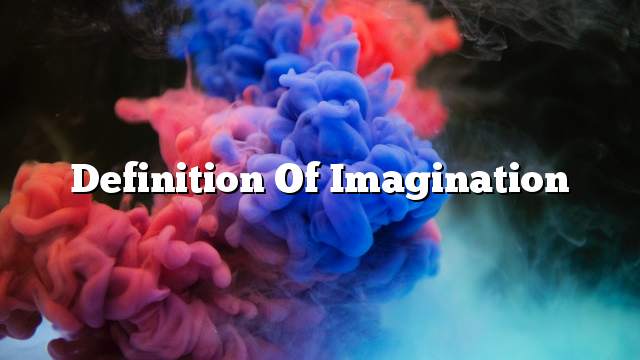Fantasy
People are often faced with multiple fantasies, which convey them to another world through which they can control their lives and the things they face without being deterred or stopped. It is an obsession that develops ideas in the human mind based on a wish for security and often aimed at determining the future that pleases him, The imagination has many different concepts that have been identified by scientists and thinkers, such as:
Definition of imagination
Definition of Arthur Reiber
The process of bringing together memories, past experiences and images that have already been created and employed within a new structure. It is an activity that man performs creatively and may be based on human desires, reality, future stories or reviews of his past. , Review the past, and innovate the future.
Definition of Kate Egan
The exercise of the mind and the activation of its various functions, which is not a mental function in itself, it is the ability of human to think of possible things, it reflects the modernity and ability to produce and composition of the individual, and helps the brain to enrich his information and ideas, and the ability to form images and imagination is a common factor and form Fantasy.
Definition of Shaker Abdel Hamid
A process that man willfully and flexibly, through which he can walk in his own world by his mind, and create images and move them to reach what he wants, a process of college with its own branches.
Types of fiction and its sections
- Imagination is a result of memory, where a person remembers the past events in the past by employing imagination.
- Imagination called dreams of vigilance is what man imagines in his mind, which is far from reality, they are hopes and wishes have not yet realized, which causes the person frustration and sadness at the end of imagination and return to reality.
- Imagination Spectrum, where a person can recall the complex scenes that he had seen in advance in all its details as if in front of him, and this ability enables students to recall the information they have studied in advance by retrieving the pages and information in their minds.
- The fantasy that occurs to a person before sleep and after waking up.
- Fantasy caused by dreams when sleeping.
- The fantasy of deprivation, which is called hallucinations. When a person experiences deprivation in all its forms and forms, its nervous system creates these hallucinations until the deficiency and disability are compensated.
- Imaginary and creative imagination, so that man uses all his senses to produce many creative ideas, such as writers and authors.
